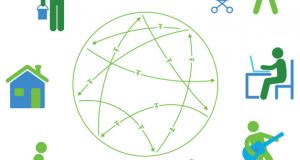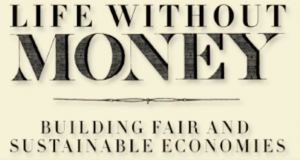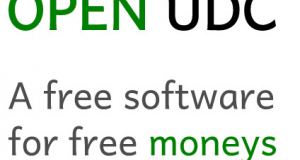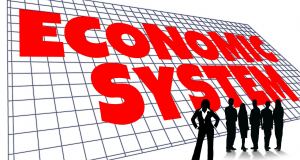
Social money is a concept of money under direct (as opposed to parliamentary) democratic control by people. Other terms are also complementary money. It's a currency that exists on a local level. The idea is to keep money under control of people and thus taking care of local economic development.
History of money
Bartering is an old and proven way to exchange goods and services. Many small scale communities used bartering, on top of systems such as gift economy. The process of bartering was also used a lot of exchanging gifts between communities.
Money came into place as a more preferred system as it was more scalable than exchanging goods themselves. It paved the way for a distributed form of administrating who owned what to whom. As time passed by, the money system itself evolved from this bottom-up approach to a more centralized system controlled by governments.
It is even said that money originated as a voucher, that people themselves created. The voucher would resemble the value of exchange and would give the future right to the holder to receive that good. It were the people themselves attributing the assumed value to money, and the people created the money by themselves.
Democratizing money
Social money is a way to bring the control of money back into the hands of the communities. Social money allows people to democratically control the supply of money and the rules of the game by which money plays, such as interest rates and inflation.
A group of people can establish a currency where all members can have influence on how the circulation of money is implemented. These days with cryptomoney such as bitcoin and blockchain, this process has become easier to implement.
Local money
Another term often used to refer to social money is local money, complementary currencies or community currencies. These days there exist many initiatives around the world that offer local money. They are often intended as a way to stimulate a more local circulation of money. As such you can prevent a local drain of wealth.
A local currency acts as a complementary currency to a national currency, rather than replacing it, and aims to encourage spending within a local community, especially with locally owned businesses.






